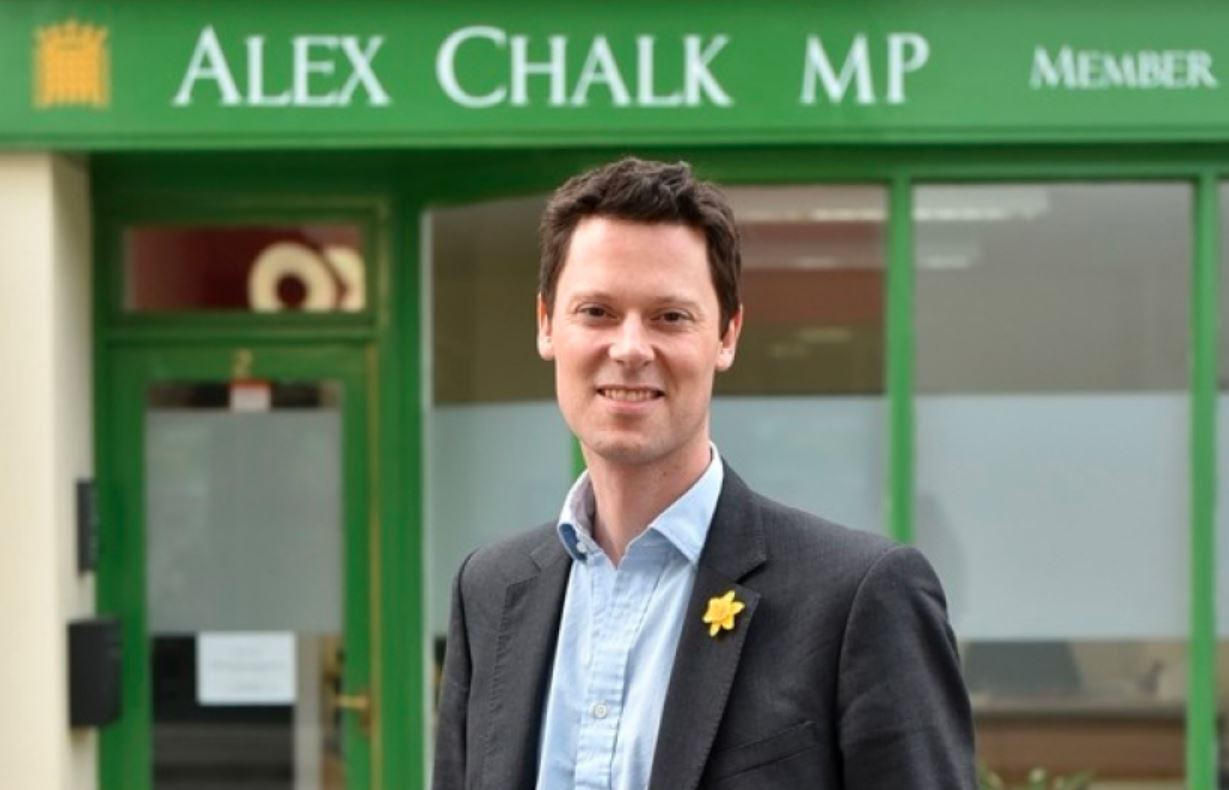It’s long established that the UK is being ruled by a cowboy government so it will no surprise to learn their latest plan to solve Britain’s prisons crisis is to copy Texas.
Tories toward the more extreme right of the party will be disappointed to learn that doesn’t mean reintroducing the death penalty. Sure, it would be an easy and quick solution to prison overcrowding but capital punishment hasn’t been used in the UK since 1964, was suspended in 1965 and finally abolished in 1969. Not even this version of the Tories is proposing to reinstate it. Yet.
However, what will cheer them up is news that more foreign criminals will be deported from UK jails to ease what the Guardian calls “dangerously overcrowded” conditions. So too, even tougher sentences for the “most dangerous prisoners”, as announced today (October 16) by justice secretary Alex Chalk, who has vowed to go even further in punishing criminals.
Rapists will “spend the entirety of their sentence in prison – so that victims get the justice they deserve and the British people are protected,” said Chalk, adding: “No longer will the perpetrators of this heinous crime walk out of prison after even two thirds of their sentence. A 15-year sentence will mean 15 years in prison.”
Given this policy of locking “up the most dangerous offenders for longer” will inevitably add to a prison population already at crisis point, Chalk’s big solution is to take the lead from Texas. Sadly for some Tories, it’s the Lone Star state’s “soft” approach to low-level criminals that the secretary of state wants the UK to emulate to fix the prisons crisis, rather than the more macabre spectacle of death rows in Welsh and English jails.
Texan reforms have introduced lighter sentences for non-violent criminals while simultaneously promoting probation and rehab as alternatives to prison. Chalk wants Britain to adopt a similar strategy with his plans for “Texas-style justice”, so instead of banging up low-level offenders, he intends to make them “repay their debt to society within communities”.
As such, Chalk will scrap jail time for almost everyone sentenced to less than a year and instead tag them up, impose 20 hour curfews and get them “cleaning up neighbourhoods, scrubbing graffiti off walls, and even helping to plant new forests”
This “soft” approach to fixing the prisons crisis won’t appeal to hardliners but deporting foreign criminals most certainly will.
But it will come at a cost. Earlier this month Chalk announced the UK will rent prison cells in other countries “to ensure dangerous offenders can be locked up for longer.”
That came with a promise to build six new prisons creating “an additional 20,000 places” in what the department billed as “the biggest prison expansion programme in over a century”. It claims more than a quarter of these – around 5,500 places – have already been built and 2,400 more “created in the existing prison estate”. This has been achieved “by doubling up on cell occupancy where it is safe to do so and delaying non-urgent maintenance work.”
The average cost of a prison place in England and Wales in 2021/22 was around £47,000 per year. That was slightly down from the previous year but still a massive £11,200 more than in 2015/16 when the average cost was around £35,812 per year.
The figures are interesting not just because of the 30% rise in the cost per prison place in just six years but also because of the type of “place” provided, given the number of cells that have been doubled-up in jails that have not been maintained. One might expect costs to fall when the same cell is now being used to accommodate twice as many prisoners.
And to fall further given much needed maintenance work has been postponed in order to keep cells open for the rising prison population.
That short-termism also comes at a cost and recently saw His Majesty’s Inspector of Prisons deliver his scathing verdict that one-in-ten jails should be shut down because they are not fit for purpose, Overcrowded, rat infested, understaffed and under resourced Victorian jails in England and Wales “have got just far more prisoners than they were originally designed for,” said the inspector Charlie Taylor, calling conditions at Wandsworth HMP “hideous”.
The inmate population in England and Wales has hit an unwanted record high of 88,225 prisoners. That’s double what it was 30 years ago – the inevitable consequence of poor planning, inaction and negligence despite all the promises about more spaces and prison reform.
But it’s no surprise given the unending Tory game of ministerial musical chairs around the cabinet table, defining Conservative rule of the past decade and taking public services to a literal crumbling point.
Ministers are more akin to cowboys trying to stay on the back of a bucking bull and their style of governance more suited to running rodeos than ruling the sixth largest economy in the world.
Chalk, 47, is a former barrister (who specialised in murder and serious fraud cases) and an “old school mate” of Rishi Sunak – even though he backed Matt Hancock in the first round of the Conservative’s 2019 leadership election. While that alone raises serious questions to be asked about his judgement, it should be pointed out Chalk voted to Remain in 2016 and is “an ardent supporter of the net zero agenda”.
He was first elected MP for Cheltenham – which may explain the Hancock connection, given the former health secretary’s links to horse racing (as too those of Dido ‘£36bn Test and Trace’ Harding) – in December 2015.
He was appointed justice secretary on April 21 this year, becoming the UK government’s eleventh justice secretary since 2010 – which includes two spells for Dominic Raab. Other luminaries of the Tory party to hold the position during the past decade are Liz Truss (11 months, July 14, 2016 – June 11, 2017), Michael Gove (14 months from May 8, 2015 to July 14, 2016) and Brandon Lewis who was appointed on September 6, 2022 and replaced seven weeks later on October 25.
That was more than enough time to qualify for the ministerial redundancy package – worth £16,876 – but, like Truss, Gove and the rest of the posse of cowboys, it’s hardly time to understand the brief never mind get to grips with a department requiring root and branch reform.
What’s true in the Ministry of Justice is true across Whitehall. The evidence is not just in the jails and prisons crisis, but all around us.




